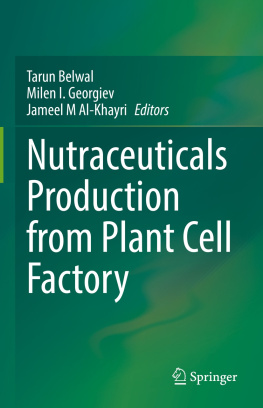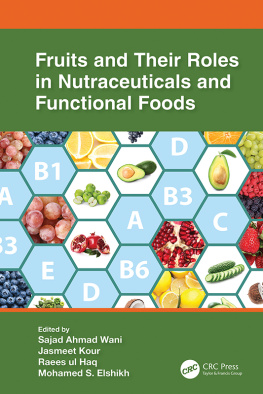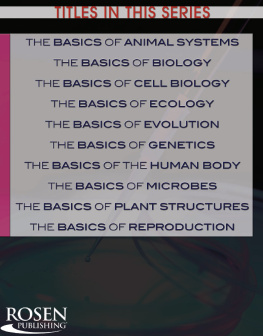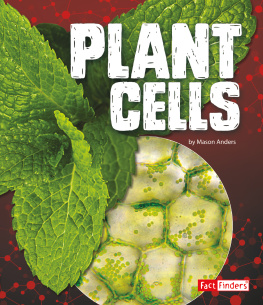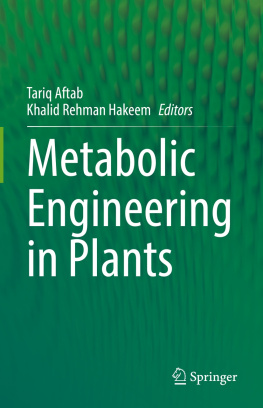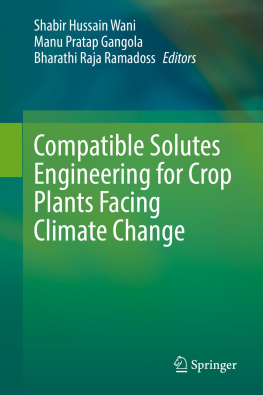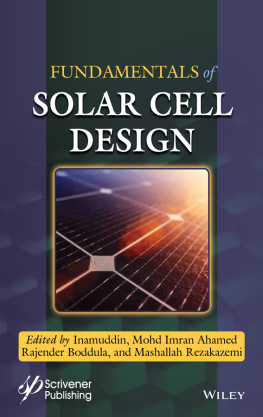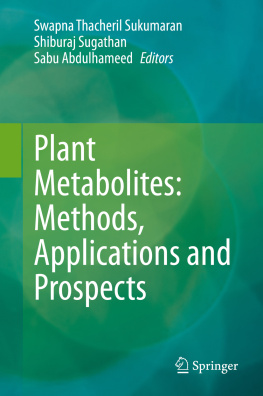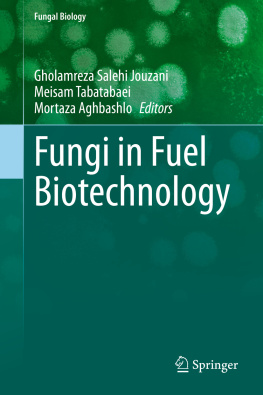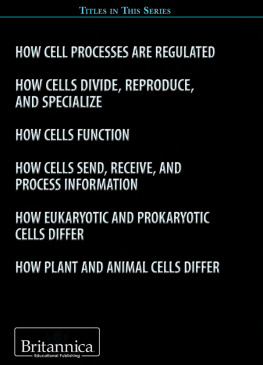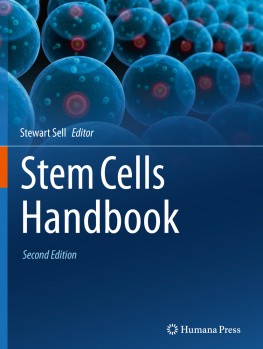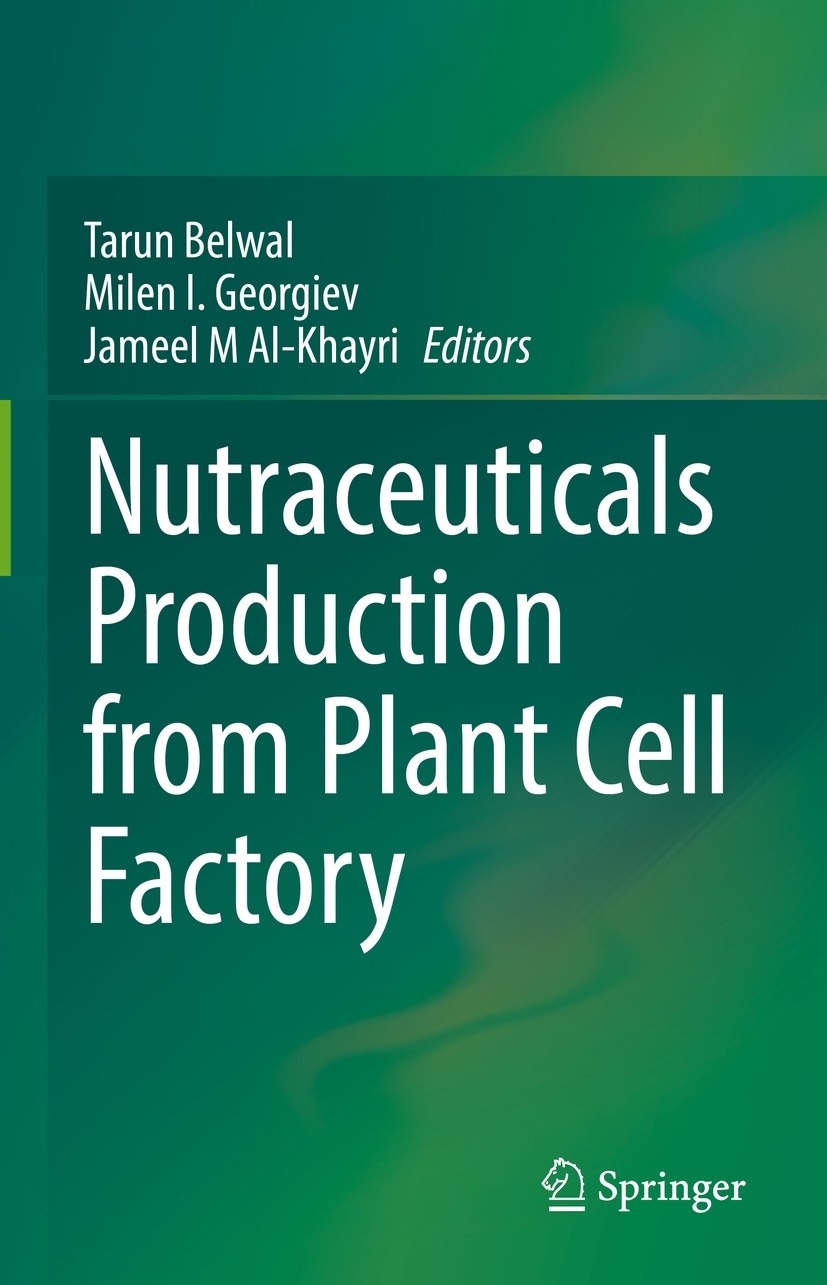Editors
Tarun Belwal
Biosystems Engineering and Food Science, Zhejiang University, Hangzhou, China
Milen I. Georgiev
Institute of Microbiology, Bulgarian Academy of Sciences, Plovdiv, Bulgaria
Jameel M Al-Khayri
Agricultural Biotechnology, King Faisal University, Al-Hassa, Saudi Arabia
ISBN 978-981-16-8857-7 e-ISBN 978-981-16-8858-4
https://doi.org/10.1007/978-981-16-8858-4
The Editor(s) (if applicable) and The Author(s), under exclusive license to Springer Nature Singapore Pte Ltd. 2022
This work is subject to copyright. All rights are solely and exclusively licensed by the Publisher, whether the whole or part of the material is concerned, specifically the rights of translation, reprinting, reuse of illustrations, recitation, broadcasting, reproduction on microfilms or in any other physical way, and transmission or information storage and retrieval, electronic adaptation, computer software, or by similar or dissimilar methodology now known or hereafter developed.
The use of general descriptive names, registered names, trademarks, service marks, etc. in this publication does not imply, even in the absence of a specific statement, that such names are exempt from the relevant protective laws and regulations and therefore free for general use.
The publisher, the authors, and the editors are safe to assume that the advice and information in this book are believed to be true and accurate at the date of publication. Neither the publisher nor the authors or the editors give a warranty, expressed or implied, with respect to the material contained herein or for any errors or omissions that may have been made. The publisher remains neutral with regard to jurisdictional claims in published maps and institutional affiliations.
This Springer imprint is published by the registered company Springer Nature Singapore Pte Ltd.
The registered company address is: 152 Beach Road, #21-01/04 Gateway East, Singapore 189721, Singapore
Preface
Plant cells have been effectively utilized over the past few decades to produce valuable natural bioactive compounds under artificial conditions. Nutraceutical compounds, which encompass nutrients and pharmaceuticals, are gaining higher market demands due to their health-promoting properties, added value to food products, and mitigation potential of various diseases. Considering their high demand and the limitations of natural resources, biotechnological tools based on cell culture techniques provide effective means of scaling up the production of these natural products. However, considering the complexity of cell types, genetic factors, and targeted nutraceutical compounds, the optimum cell culture conditions vary and hence require empirical determination.
The purpose of this book is to highlight the in vitro techniques, current status, and challenges of producing nutraceutical compounds. In addition, it provides an overview of different biosynthesis pathways and their modulation through cell culture technique for the production of nutraceutical compounds in high quantity and quality. The book also emphasizes assessment of the factors influencing production and advances in cell culture techniques, including scale-up approach using bioreactors. Overall, this book will provide the current status, methods, research, advances, and challenges of in vitro production of nutraceutical compounds along with recommendations for future research.
The book comprises different parts, namely theory and technology, in vitro production of nutraceutical compounds, and strategic advances and challenges. The theory and technology part covers the general description of nutraceutical compounds, plant cell culture technology, bioreactors, and factors affecting in vitro production of nutraceuticals. The in vitro production of nutraceutical compounds part mainly deals with the in vitro production of important nutraceutical compounds, namely polyphenols, alkaloids, coumarins, terpenoids, anthocyanins, carotenoids, saponins, steroids, tocopherols, phytosterols, and quinones. The last part of the book covers the strategic advances and challenges, comprises chapters dealing with optimization strategies for in vitro nutraceutical production, genetic engineering, and microbial cell factory for nutraceutical production, and highlights the challenges of in vitro nutraceutical production.
The book is an excellent reference source for researchers working in the area of in vitro biosynthesis of nutraceutical compounds, food science, plant biotechnology, nutraceutical research, and pharmacological activities. Also, it will be useful for industries working on plant biotechnology, especially the in vitro biosynthesis of nutraceutical compounds.
The editors appreciate chapter authors for their contributions towards the success and quality of this book, which represents the efforts of 56 scientists from five countries. We are also grateful to Springer for giving us an opportunity to compile this book.
Tarun Belwal
Milen I. Georgiev
Jameel M. Al-Khayri
Hangzhou, China Plovdiv, Bulgaria Al-Ahsa, Saudi Arabia

